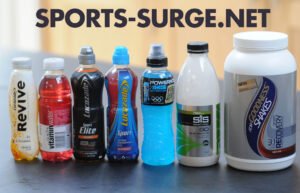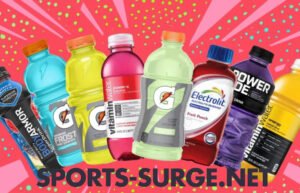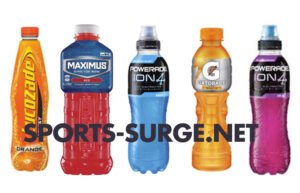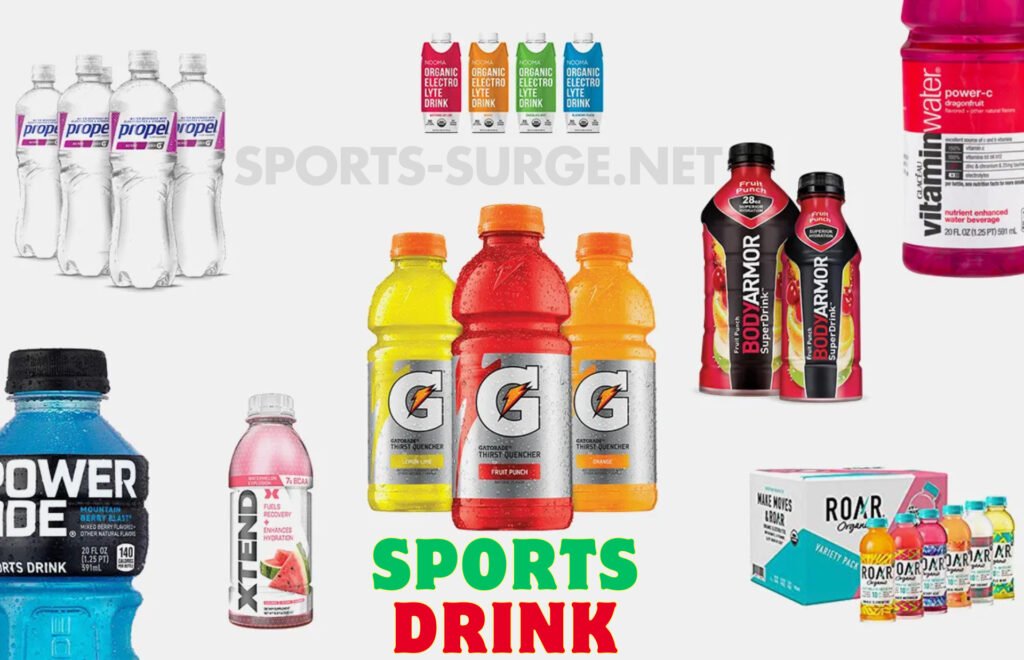In the world of fitness and sports, hydration plays a pivotal role. Whether you’re an elite athlete, a weekend warrior, or simply someone who enjoys staying active, maintaining your body’s fluid balance is crucial for peak performance. This is where sports drinks come into play. But what exactly are sports drinks, and how do they impact your performance? This comprehensive guide will explore everything you need to know about sports drink in 2024, including the latest trends, ingredients, benefits, and considerations.
Table of Contents
ToggleWhat Are Sports Drinks?

Sports drinks are beverages specifically formulated to help athletes and active individuals replenish fluids, electrolytes, and energy lost during physical activity. Unlike plain water, sports drinks often contain carbohydrates, electrolytes (such as sodium, potassium, and magnesium), and sometimes vitamins or other functional ingredients aimed at enhancing performance and recovery.
Types of Sports Drinks:
- Isotonic: Contain similar concentrations of salt and sugar as found in the human body. These are the most common types, ideal for most athletes.
- Hypotonic: Contain lower concentrations of salt and sugar, designed for quick hydration without significantly boosting energy levels.
- Hypertonic: Have higher concentrations of salt and sugar, primarily used to supplement daily carbohydrate intake rather than rehydration during activity.
The Science Behind Sports Drinks
Sports drink work by addressing three critical components of hydration and energy management:
- Fluid Replacement: Physical activity leads to sweating, which depletes the body’s water levels. Dehydration as little as 2% of body weight can impair performance. Sports drinks help replenish lost fluids.
- Electrolytes: Sweating also causes loss of essential electrolytes like sodium and potassium, which are vital for nerve and muscle function. Sports drinks restore these to maintain optimal bodily functions.
- Carbohydrates: During prolonged exercise, glycogen stores in the muscles deplete. Sports drinks supply carbohydrates to provide a quick source of energy.
Benefits of Sports Drinks
- Enhanced Performance: Proper hydration and electrolyte balance can delay fatigue and improve endurance.
- Faster Recovery: The combination of electrolytes and carbohydrates aids in quicker muscle recovery post-exercise.
- Prevention of Cramping: Replenishing electrolytes like potassium and sodium can help prevent muscle cramps during intense workouts.
- Convenience: Sports drinks are a quick and efficient way to hydrate and energize, especially during long-duration activities.
Latest Trends in Sports Drinks (2024 Edition)

- Functional Additives: Many sports drinks now include ingredients like BCAAs (branched-chain amino acids), adaptogens (e.g., ashwagandha), and vitamins to enhance their performance-boosting properties.
- Natural Ingredients: With a growing demand for clean labels, brands are focusing on natural sweeteners (like stevia or agave), plant-based electrolytes, and organic certifications.
- Personalized Hydration: Some companies offer hydration solutions tailored to individual needs based on sweat tests and activity levels.
- Eco-Friendly Packaging: Sustainability is a priority, with many brands adopting biodegradable bottles and eco-conscious manufacturing processes.
- Zero-Sugar Options: For those focused on calorie control, zero-sugar and low-calorie sports drinks are increasingly popular.
Key Ingredients to Look For
- Sodium: Essential for maintaining fluid balance and preventing dehydration.
- Potassium: Supports muscle function and helps prevent cramps.
- Magnesium: Plays a role in energy production and muscle relaxation.
- Carbohydrates: Typically in the form of glucose, sucrose, or maltodextrin, these provide quick energy.
- Antioxidants: Ingredients like vitamin C and E combat exercise-induced oxidative stress.
- Coconut Water: A natural source of potassium and electrolytes, often used in natural sports drinks.
How to Choose the Right Sports Drink

Choosing the best sports drinks depends on several factors, including the type, intensity, and duration of your activity, as well as your personal health goals. Here’s a quick guide:
- For Short Workouts (<1 Hour): Water or a hypotonic drink is sufficient.
- For Moderate Workouts (1-2 Hours): An isotonic drink with a mix of electrolytes and carbohydrates is ideal.
- For Long or Intense Workouts (>2 Hours): A combination of isotonic and hypertonic drinks may be beneficial to maintain energy levels.
- For Calorie Control: Opt for zero-sugar or low-calorie options.
- For Natural Preferences: Look for organic, plant-based options with no artificial additives.
Top Sports Drink Brands in 2024
- Gatorade: A classic favorite, now offering sugar-free and organic options.
- Powerade: Known for its affordability and balanced electrolyte formulas.
- BodyArmor: Features coconut water and natural sweeteners, popular for its clean-label approach.
- Nuun: Tablets that dissolve in water, offering a portable and customizable hydration solution.
- Tailwind Nutrition: A favorite among endurance athletes for its balanced electrolyte and calorie profiles.
DIY Sport Drinks: Make Your Own

If you prefer a homemade solution, crafting your own sport drink is easy and cost-effective. Here’s a simple recipe:
Ingredients:
- 1 liter of water
- ½ teaspoon of salt (sodium)
- ½ cup of orange juice (natural source of potassium and flavor)
- 2 tablespoons of sugar or honey (for energy)
Instructions:
- Mix all ingredients in a large bottle until well combined.
- Store in the refrigerator and consume during workouts.
When to Avoid Sports Drinks
While sports drinks have their benefits, they aren’t suitable for every situation. Avoid them if:
- You’re Inactive: The added sugar and calories can contribute to weight gain if you’re not burning them off.
- You Have Health Concerns: Consult a doctor if you have diabetes, high blood pressure, or other medical conditions.
- You’re Under 1 Hour of Activity: For shorter workouts, water is usually sufficient.
The Future of Sports Drinks
With advancements in technology and a deeper understanding of sports science, the future of sport drinks looks promising. Innovations like real-time hydration monitors, AI-driven dietary recommendations, and fully biodegradable packaging are set to redefine the industry. Moreover, the integration of wearable tech with hydration solutions may offer unprecedented convenience and efficiency for athletes.
Final Thoughts
Sports drinks can be a game-changer for those engaging in rigorous physical activities. By understanding their composition and benefits, you can make informed decisions to optimize your performance and recovery. As the market continues to evolve in 2024, staying updated with the latest trends and innovations will ensure you’re always a step ahead in your fitness journey. Whether you choose a popular brand, a specialized product, or a DIY solution, remember that hydration is the cornerstone of athletic success.
FAQs about Sports Drink
What are sports drinks, and how do they differ from energy drinks?
Sports drinks are beverages formulated to replenish fluids, electrolytes, and carbohydrates lost during physical activity, aiding in hydration and endurance. They typically contain water, sugars, and electrolytes like sodium and potassium. In contrast, energy drinks often contain higher concentrations of carbohydrates and stimulants such as caffeine, designed to boost mental alertness and energy levels rather than rehydrate. It’s important to note that energy drinks are not suitable for rehydration during exercise and may pose health risks if consumed inappropriately.
When should I consume a sports drink instead of water?
Sports drinks are beneficial during prolonged or intense physical activities lasting more than an hour, especially in hot or humid conditions where sweating is excessive. They help replenish electrolytes and provide carbohydrates for sustained energy. For shorter or less intense workouts, water is generally sufficient for hydration.
Are sports drinks safe for children and adolescents?
While sports drinks can be safe for young athletes engaged in prolonged, vigorous activities, they are often unnecessary for most children. Excessive consumption can lead to increased calorie and sugar intake, contributing to weight gain and dental issues. Water is usually adequate for hydration in children. It’s advisable to consult with a healthcare professional before allowing children to consume sports drinks regularly.
Can I drink sports drinks daily, even when not exercising?
Regular consumption of sports drinks without corresponding physical activity can lead to unnecessary intake of sugars and calories, potentially resulting in weight gain and other health issues. These beverages are designed to support hydration and energy needs during exercise and are not intended for regular daily consumption by inactive individuals.
What are the potential health risks associated with sports drinks?
Potential health risks include dental erosion due to high sugar content, weight gain from excessive calorie intake, and, in some cases, an imbalance in electrolyte levels if consumed inappropriately. It’s essential to use sports drinks as intended—for supporting hydration and energy during extended physical activity—and to be mindful of their ingredients.
How do I choose the right sports drink for my needs?
Selecting the appropriate sports drink depends on the duration and intensity of your activity, personal health goals, and dietary preferences. Key factors to consider include electrolyte content (sodium, potassium), carbohydrate concentration, presence of any stimulants or additives, and overall calorie content. For those seeking natural options, some sports drinks use ingredients like coconut water for electrolytes and natural sweeteners. It’s advisable to read labels carefully and choose a product that aligns with your specific hydration and energy requirements.

